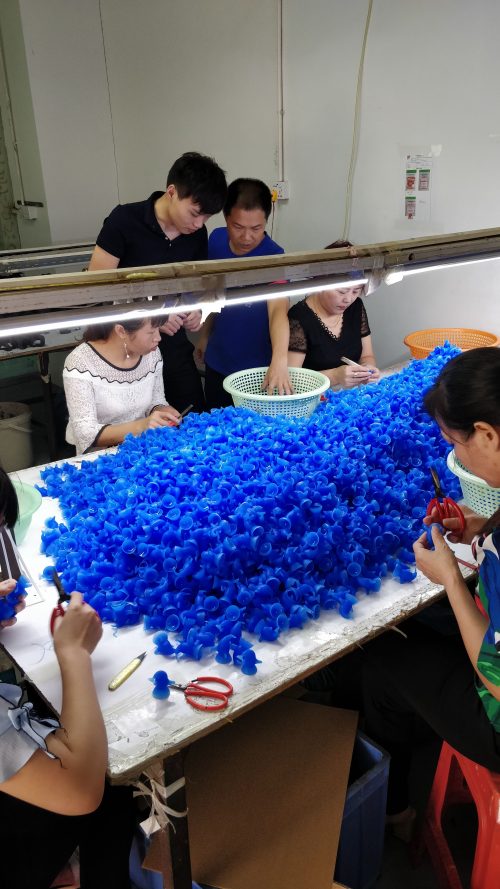With over 20 years of experience in the big box retail industry, Jeff Leitman is building a reputation as a self-made CEO of a company he co-founded.
Killer Concepts, a profitable and fast-growing company, makes mobile phone accessories of their IP. The company has been included in Inc. Magazine’s list of 500 Fastest-Growing Private Companies (#398), by growing the company’s revenues by more than 1,250% in a three-year period. This success was hard won.
Jeff, a native of Montreal, entered the tech world after college, when computers were just starting to become mainstream, just prior to the Windows 95 launch. At the age of 25, he quit his job and moved to California with $3,000 in the bank. He then spent 2 years working in consumer software sales, then returned to big box retail as a corporate buyer for a National Chain. In 2003, he again found himself with the option to start something new.
China had always fascinated Jeff, and running his own company intrigued him. He bought a plane ticket for himself and his friend Rick, and it was there that Killer Concepts was born.
“We landed not knowing what we were going to do but knew that it would come to us,” says Leitman. “It was on that first trip that the idea of a Bluetooth speaker would become our launch product. It was a few weeks later that we decided on the name Rocksteady.”
It’s been about 7 years since that trip to China, but he returns often to visit his operations manager, quality control agents, and the factories that make his products. Despite the cultural differences and language barriers, he’s kept at it—and soon realized the benefits of forming relationships in order to overcome communication issues and to build trust.
The biggest obstacle he faced while exploring business ventures abroad was understanding and implementing the complex international banking rules in China (and Hong Kong) as the company grew. It was one thing to wire a few thousand dollars, but what would happen when the company would be paying for large production? “Building a million units of something takes a lot of planning and logistics,” says Leitman. “We would never have been able to do this with in our early years. Banks ignored us, even when we weren’t asking for money. To overcome this, we had to form strategic relationships and identify key decision-makers in order to minimize our risk.”
In time, the company switched gears and entered the impulse category of retail cellphone accessories. In late 2014, they launched Piggy, the Original Phone Stand. Today, it’s the company’s most popular and best-selling product, and its success gave the company the capital it needed in order to expand into other products.
Growth was not easy for Killer Concepts, and even major early victories proved short lived. “It was our second Christmas with Piggy and we had just gotten our first million-unit order from a major retailer,” says Leitman. “The container got delayed in China, then again in the US when it was flagged for customs. The customer waited and waited, but finally cancelled the order. The million+ units arrived at warehouse just 3 days later. That was a tough period.”
Perseverance is so important when running a business. “As long as we have a plan that we believe in and can implement, then hard work and time are the only obstacles to success,” says Leitman. Killer Concepts found a home for those million Piggys, and then some more. Finally placing them at retailers across the spectrum, including College Campus Bookstores, convenience stores, specialty stores (such as GameStop, Staples, Bed Bath and Beyond, and more), mass merchants (such as Wal-Mart and others), and discount retailers. Re-orders are what fueled the company’s growth—in terms of head count, infrastructure, and new products.
Killer Concepts is committed to a long-term vision. According to Leitman, “We are trying to build a series of brands in Piggy, Rocksteady, Killer Concepts and more. Along the way, we made many mistakes (and continue to make new ones), surviving and learning from those mistakes are the battle scars that make us better. Fundamentally, the battle is to avoid commoditization. My advice to startups is to not be too shy to demand a profit. You can always lower your price, but raising it is nearly impossible. Be bold.
Understanding your channel, and knowing who the real customer is, are both key to building solutions that work. We may sell to retailers, but we know our customer is the consumer, so we start with them and work backwards.”
Find a Home-Based Business to Start-Up >>> Hundreds of Business Listings.


















































